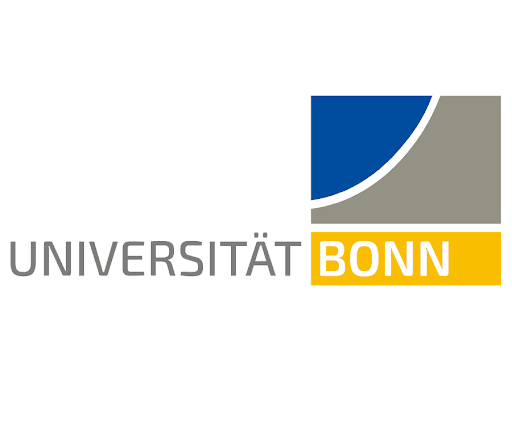University of Bonn

University of Bonn
About the University of Bonn
The University of Bonn also known as Universität Bonn was founded on 18 October 1818, in the North of Rhine-Westphalia state of Germany. It was initially named the University of Rhine. It’s a public research university with 6 Cluster of Excellence Awards. Moreover, the university includes more than 5,500 or 14.2% of international students across the globe and provides a wide range of interdisciplinary curriculum.
Image of University
Overall Ranking
The University of Bonn is a world-renowned educational institute and according to current analysis, its ranking ranges at 124 of 14,160 in the World, 32 of 2,789 in Europe, 5 of 370 in Germany, 1 of 65 in North-Rhine Westphalia, and 1 of 2 in Bonn. Apart from that, the university also has exceptional rankings in particular courses like Nuclear Physics at 21 of 1,010 and top 100 for 21 other topics.
Courses offered by the University of Bonn
The university offers a vast syllabus across many degree programs. Following are the faculties that offer these programs to students:
- Social Science and Humanities
- Catholic Theology
- Protestant Theology
- Law, Economics & Social Sciences
- Medicine
- Arts
- Mathematics & Natural Sciences
- Agriculture
Scholarship and Financial Aid
No information about this is given on University’s portal. In case of any update, data will be updated here as well.
Internships near University of Bonn
As a part of the study curriculum, students are expected to complete their internships in their field of interest. Training Agreement shall be granted to every student.
Jobs near University of Bonn
Students from the University of Bonn get placed into academic sectors at the following companies: McKinsey, Boston Consulting, MANGO, and many more.
Housing and Accommodation
Students can have accommodation in dormitories managed by the Studierendenwerk, a student support association, of the University. Apart from that, there are a variety of hostels and apartments available for students. Shared and double rooms are available and the average amount of rent in Bonn is €360-€450/month. Furthermore, private accommodations can be found on websites and in newspaper advertisements.
Cost of living
Primarily, the standard of living in Bon is considerably high as it’s one of the most popular cities in Germany. Furthermore, the monthly expense of a student costs around €600-€800/month. Depending on the lifestyle of the individual, the cost may vary. Along with that, the students also have to pay a compulsory semester fee of €300/semester.
[table id=13 /]
Places to visit near the University of Bonn
Bonn is situated near the country’s western border with Belgium. Some of the famous places to be discovered here and students can enjoy these sites during their downtime:
- Bonn Minster: One of the oldest churches in Germany, Bonn Minister is a Roman Catholic Church that was built in the 11th and 13th centuries during the turn of romanticism into the Gothic period. It’s a majestic structure with five spired basilicas in the downtown area of the city. Moreover, students with historical inclinations would love to explore this place.
- Beethoven-Haus: The birthplace of masterful composer Beethoven, it’s a memorial site founded in 1889, which studies the work and life of Ludwig van Beethoven. It also serves numerous other purposes like being a museum or a cultural institution.
- Museum Koenig: It’s an interactive museum of zoological research and also houses historical exhibits. Named after Alexander Koenig, who donated his collections the museum was opened in 1934 and is affiliated with the Leibniz Association. Moreover, art lovers would visit the museum for its extensive collections.
Lastly, the University of Bonn is Germany’s most recognized institution for research and higher education and a globally respected and international research university with a clear academic profile and defined fields of excellence in research. Moreover, the university welcomes numerous international students looking forward to their contribution.


